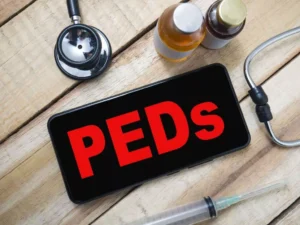
Allergies to brewer’s yeast and other yeasts have been well-documented in the medical literature. Yeast is used in all fermented alcoholic beverages, including beer, wine, hard cider, and sake. Many people who develop alcohol intolerance simply enjoy the occasional drink, though some may have an alcohol dependence and become especially distressed at the onset of these symptoms. (The drug disulfiram, for example, causes this reaction on purpose as part of treatment for alcohol use disorder). But if you are unable to stop drinking alcohol, this reaction can be a serious problem indeed. If a person develops a mild intolerance to alcohol or an ingredient in beverages, they may be able to manage it themselves simply by avoiding or limiting alcohol or certain drinks.

What Is Alcohol Intolerance?
This may result in higher concentrations of alcohol in the blood and more significant effects from drinking. Ask your doctor if you need to carry emergency epinephrine (adrenaline) in the form of an autoinjector (EpiPen, Auvi-Q). This prescription device has a concealed needle that injects a single dose of epinephrine when you press it against your thigh. If you have any unpleasant symptoms after drinking alcohol, see your healthcare provider.
How is alcohol intolerance diagnosed?
“If you start to feel sick after drinking a small amount of alcohol, or notice your face, chest and neck becomes flushed, this can be a sign of alcohol intolerance,” says Parker. With a serious illness, it’s better to abstain from alcohol to avoid further https://ecosoberhouse.com/article/alcohol-vs-drugs-comparison-of-addictions/ taxing the body. Doing so will also give it the best chance of fighting the illness effectively. Some people may find that their alcohol tolerance becomes higher with time. This is likely due to “practice” as they continue to use alcohol regularly.

Alcohol Intolerance vs. Alcohol Allergy
If you continue to drink alcohol and suffer from alcohol intolerance, this is likely to cause liver damage. If you’re allergic to another ingredient contained in certain alcoholic products, switching to a different drink might be an option. If you have this variant, it causes your body to produce less active ALDH2. A true allergic reaction happens when your immune system goes into overdrive to attack something it sees as a threat. Allergic reactions can cause hives, facial swelling, nausea, and vomiting.
- Your body has two enzymes that are supposed to break down histamine, but sometimes they don’t work as well as they should.
- Alcohol intolerance is a rare condition in which your body cannot process alcohol correctly, leading to a build-up of a chemical called acetaldehyde.
- If you have alcohol intolerance, drinking even tiny amounts of alcohol can cause you to flush, usually within 20 to 30 minutes of drinking.
- Some people may become worried about a more significant medical reason for not being able to drink like they used to, while others may feel social or career-related pressures to drink.
- Research has shown that some people with mild symptoms of intolerance can get used to the symptoms of excess acetaldehyde in their bodies.
- An alcohol allergy occurs when the immune system overreacts to alcohol entering the body.
- If you notice any of these symptoms after consuming alcohol, it’s important to seek medical attention right away.
How to Sober Up From Alcohol, Cocaine, and Other Substances

Therefore, if you have celiac disease or non-celiac gluten sensitivity, you’ll need to steer clear of conventional beer and some other drinks. If you are intolerant to alcohol, you will probably see a reaction almost immediately after having a drink. Symptoms can include redness (flushing) in the chest, neck and face, a runny or blocked nose, itchy skin, low blood pressure, nausea and vomiting and diarrhea. If you what causes alcohol intolerance have an alcohol intolerance (or a lowered tolerance) but are struggling to give up alcohol, get in touch with Ria Health for further advice and guidance. People who find they become intoxicated off a few drinks should limit their consumption accordingly, and not try to “keep up” with others. Alcohol can cause a great level of discomfort if someone drinks it without being aware they have alcohol intolerance.
- Alcohol intolerance is a common condition that affects many people worldwide.
- Alcohol intolerance can lead to a range of immediate reactions, but it also presents significant long-term health risks.
- This means that they may inherit certain genes that affect their ability to metabolize alcohol properly.
- It is a condition that affects many individuals who consume alcohol.
- Some people take medicines like the antihistamines diphenhydramine (Benadryl) or famotidine (Pepcid) about 30 minutes before drinking alcohol.
- It’s important to note that some individuals may not realize they have alcohol intolerance and mistakenly attribute their symptoms to other factors such as stress or dehydration.
Those with alcohol intolerance should try to limit or abstain from alcohol consumption entirely. Alcohol intolerance is different to having a ‘low tolerance’ to alcohol. The latter term is generally used in social settings to describe someone who experiences the effects of drinking alcohol much quicker than others. Aldehyde dehydrogenase (ALDH2) is an enzyme that your body uses to digest alcohol. It turns alcohol into acetic acid, a main component of vinegar, in your liver. People with alcohol intolerance may notice one or more of these symptoms after taking a few sips of alcohol.
Mixing Alcohol With Medications: Why It’s Dangerous
- In some cases, a sudden change in alcohol tolerance may be a sign of an underlying health condition such as liver disease or gastroesophageal reflux disease (GERD).
- It may seem unfair that an inherited condition keeps you from enjoying the occasional glass of wine or beer.
- While cirrhosis scars from excessive drinking are irreversible, quitting alcohol and leading a healthier lifestyle can help your liver heal from alcohol-related liver disease.
- For a minor reaction, over-the-counter or prescription antihistamines might help reduce symptoms, such as itching or hives.
This mutation affects the function of the aldehyde dehydrogenase (ALDH) enzyme, which is responsible for breaking down alcohol in the body. When this enzyme is not working properly or absent altogether, it can lead to uncomfortable symptoms such as flushing and headaches. It may also be helpful to keep track of what types of alcoholic beverages trigger your symptoms and avoid them in the future. In some cases, reactions can be triggered by a true allergy to a grain such as corn, wheat or rye or to another substance in alcoholic beverages. If you don’t know if you have alcohol intolerance or alcohol allergy, see your doctor or an allergist. The only way to prevent an allergic reaction is to avoid the substance that causes it.
How to Distinguish Between Alcohol Intolerance and an Alcohol Allergy?
If it’s important to you to continue to drink on occasion, you can try different types of beverages to see if any work. If you are vomiting after drinking a number of rounds with friends, and they all seem okay, you may simply have a lower tolerance than they do. In some cases, they might use an oral challenge test to diagnose an allergy or intolerance. In this procedure, they will ask you to consume a sample of your suspected trigger. Normally your body produces an enzyme called diamine oxidase (DAO) to break histamine down.
- Even if you only have mild symptoms of alcohol intolerance, you should avoid alcohol.
- Ultimately, mixing Pepcid and alcohol so that you can drink more only worsens the problem.
- Many foods, including red wine and aged cheese, are high in histamine.
- Your body uses an enzyme called aldehyde dehydrogenase, or ALDH2, to break down acetaldehyde.

